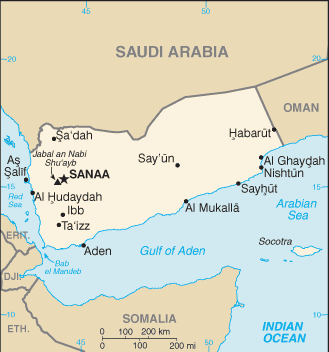Initially just one of many “partners” in the Saudi-led war against the Shi’ite Houthis in Yemen, the United Arab Emirates recently transitioned their focus to a secondary war in the country, against al-Qaeda in the Arabian Peninsula (AQAP).
 AQAP had been surging, particularly in southeastern Yemen, as the war weakened the Houthis and allowed AQAP to take over territory they could no longer defend, while the Saudis appeared unwilling for a long time to confront the Islamists, focusing instead of the Houthis.
AQAP had been surging, particularly in southeastern Yemen, as the war weakened the Houthis and allowed AQAP to take over territory they could no longer defend, while the Saudis appeared unwilling for a long time to confront the Islamists, focusing instead of the Houthis.
In taking the lead in the AQAP war, the UAE shows considerable ambition to grow its status as a regional military power, and the US is quite pleased with the offensive, backing it every chance they get. At the same time, it exposes the Emiratis to a potential backlash on multiple fronts.
The first, obviously, is that they might face attacks by AQAP and ISIS, both of whom are keen to reestablish some Islamist territory in Yemen, and after major attacks like the recent Mukallah bombings, it’s unclear if the UAE can really establish control over the area.
An even bigger risk is that the UAE’s assertiveness in the east of Yemen won’t sit well with tribal leaders, who historically haven’t taken kindly to central authority, even from their own government. While the UAE is trying to buy them off with humanitarian aid, it’s uncertain how long that can last before the tribes start reasserting their independence.


